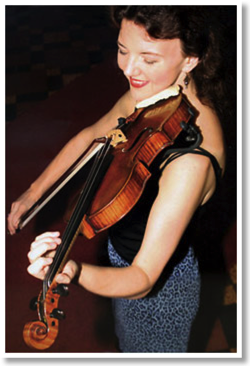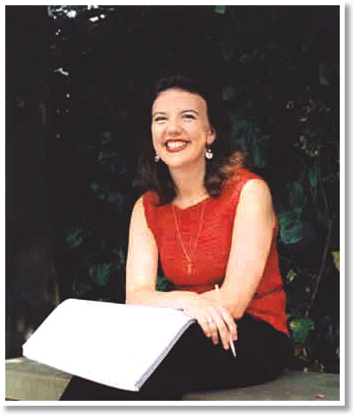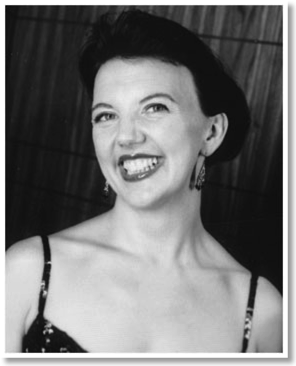An Original and Inventive Artist

In addition to being a passionate musician, she is also a compassionate philanthropist. She works closely with many organizations to bring the arts into the lives of young children and promotes music education whenever and wherever she can. She is an Ambassador for The Prince's Foundation for Children and The Arts. In 2009, Little was awarded the Gold Badge Award for her services in the musical community, and in 2012, she was named an Officer of the Order of the British Empire at the Queen's Diamond Jubilee Honours List for Services to Music.
She currently plays a 1757 Giovanni Battista Guadagnini violin and has more than 50 violin concertos in her repertoire. Many believe that her innovative mind and passion for music will spearhead the reintegration of classical music into popular culture in the future.
In this interview, Little shares some insight on what initially ignited her passion for music and what is next for this creative and giving artist.
Olivia Lin: Can you tell us what was it about music that drove you to pick up the violin?
Tasmin Little: I was ill with chicken pox and started to play the recorder – I loved playing an instrument and when I got better, I decided to start the piano and then the violin. From the moment I picked up the violin, I knew this was the right instrument for me!
When you were very young which musicians helped you to perform and learn more about the violin?
It was very inspiring to be at the Yehudi Menuhin school and hear all the older students play so well. Nigel Kennedy was one of the older boys and I really admired his playing. Yehudi Menuhin came to the school several times a year and he would hear all of us – that was so exciting!
Tell us what was it about those composers and their music that made a difference for your early playing? What did you come away with when it came to their structure and style?
We had the opportunity at school to play a varied repertoire and to play string quartets. I think it is the chamber music playing that had the most effect on my early playing – sometimes you have to blend your sound with three other players and at other times, you have to make a more soloistic sound. To this day, I still use both of those aspects in my playing.
What are some of the biggest obstacles that you have faced in becoming a professional musician in the 21st century?
I’m not sure that there are more obstacles now than there have been for international professional musicians – however, perhaps the thing I have been most cautious to avoid, is to be labeled the “British Violinist playing British Repertoire”. Yes, I love to play British repertoire but I believe that I can play the standard repertoire equally well... I have never wished to be pigeon-holed and hopefully I haven’t been – yet!

The two processes go hand in hand – obviously, I may already have an overview of a work before I begin to learn it. This could be because I have heard it many times in performance or on disc. However, I have often found that my thoughts on structure change as I get to know a work really intimately. Details in colour and tempo have an effect on the whole structure and it is finding the balance between those two things which I find exciting, during the learning process. Ideally, once I have learned a piece well, then I put it away for a few months and then come back to it. Even when I know a piece extremely well, it really helps to leave it a while from time to time and come back with a totally fresh perspective.
What do you feel is your favorite part of your job?
Undoubtedly it is the opportunity to travel and make music with musicians from all over the world, as well as play to a wide and varied audience. I think this is why I still feel really in love with my work, because all my experiences have an effect on my music. Each time I play somewhere new, a little bit of that place, the musicians and audiences remains with me.
You've been given much attention for your decision in offering free downloadable recordings in your release of The Naked Violin. What message do you want The Naked Violin to send to people across the world, and have you felt that your innovative approach has become a catching trend?
The message that I wanted to send out to people is that there is no reason to be scared of trying classical music. Anyone can enjoy classical music, and the response to my Naked Violin project was overwhelming. I had so many letters from people all over the world, saying that I had helped them find their way into classical music. I’m not sure that this approach has become a trend, but I do feel that the internet remains the most marvellous tool for helping people experience the wonder of this great genre.
What do you see for the future of classical music? How does it adapt to the quickly changing times of the modern era?
I feel that there will always be a market for classical music. People often predict the demise of classical music, but it has yet to happen and there is a huge appetite still for the great standard repertoire.
What projects can we look forward to from you in the future? Both music-wise and philanthropy-wise?
I am still very involved in bringing music into the community. Wherever I travel, I often find myself either in a school giving a workshop, or in some area of the community where I can bring music to a new audience. Concert-wise, I am still learning new repertoire and I have some wonderful CD projects on the way... Watch this space!

I think that the single most important thing is to be yourself. If you are phony, then people will sense that and your music will not feel authentic. After you have done all the hard work as a student, the hardest bit is to throw away the student mantle and have faith in your own expression without the need for validation from a teacher. I guess it’s called “growing up”! :-)
Would you like to add anything else?
I would like to add my sincere thanks to all the people who listen to my music and who send me such wonderful feedback. Even though I love to play for myself, the most rewarding experience is always to play in front of an enthusiastic and attentive audience. The combination of performer and audience is where the magic happens!
by Olivia Lin
Editor’s note: This interview was completed by the artist via email.


